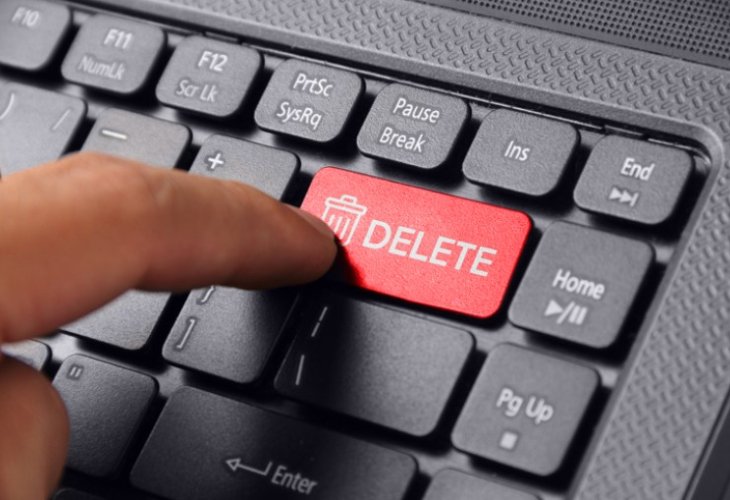Jewish Law
Is It Forbidden to Delete a File with God’s Name?
Why deleting or turning off your computer does not violate the prohibition of erasing God’s Name
 (Photo: shutterstock)
(Photo: shutterstock)Is it permissible to delete computer files that contain references to God’s Name — such as a digital siddur (prayer book) or Torah text — or would that be considered erasing the Divine Name, which the Torah forbids?
* * *
Maimonides (Rambam, Yesodei HaTorah 6:6) writes: “Whoever erases one of the sacred Names of God transgresses a negative commandment, as it says concerning idolatry: ‘And you shall destroy their names from that place — you shall not do so to the Lord your God’ (Devarim 12:3–4).”
This ruling is codified in the Tur and the Shulchan Aruch (Yoreh De’ah 276:9).
Does This Apply to Electronic or Recorded Forms?
A related question arises regarding recordings that include the Divine Name — for example, a voice recording in which God’s Name is spoken. Is erasing such a recording considered mechikat Hashem (erasing the Name of God)?
Rabbi Ovadia Yosef addressed this in Yechaveh Da’at. After quoting the Rambam, he explains that since a recording contains no visible letters, but only electronic sound waves, there is no real writing.
Therefore, erasing or recording over it is not considered erasing the Divine Name — even if God’s Name can later be heard clearly through playback.
A Proof from the Talmud
In Gittin 19b, the Gemara teaches that a bill of divorce (get) written with mei milin — a type of disappearing ink, is invalid. Even though the text can later be revealed with pomegranate juice, it is not considered “writing” when invisible to the eye. Thus, invisible or non-physical forms of text do not have halachic status as writing, nor can they attain sanctity.
By extension, the sound recording or digital data of God’s Name, though playable or viewable through electronic means, does not constitute writing, and erasing it is permitted.
God’s Name on a Computer Screen
At first glance, one might argue that the case of a computer screen differs, since God’s Name appears visibly in written form.
However, Rabbi Ovadia adds an important principle: Many authorities rule that erasing a Name not written for the sake of sanctity is permitted. When a Torah scribe writes God’s Name, he does so with explicit intent — lishmah (for holiness). Typing God’s Name on a computer, however, is done without such intent.
Moreover, the display on a screen consists only of pixels and light patterns, not actual ink or substance. Because these are not physical letters, sanctity cannot attach to them.
Halachic Conclusion
Although one could theoretically argue both ways, the practical halacha is clear that digital text is not real writing, and no sanctity rests upon it.
Therefore,
Turning off a computer,
Switching to another window, or
Deleting files containing Divine Names (such as siddurim or Torah study texts)
is completely permissible.
Rabbi Ovadia Yosef himself ruled explicitly: “There is no prohibition in deleting computer files or shutting down a screen displaying the Name of God. The prohibition of erasing God’s Name applies only to actual, physical writing.”

